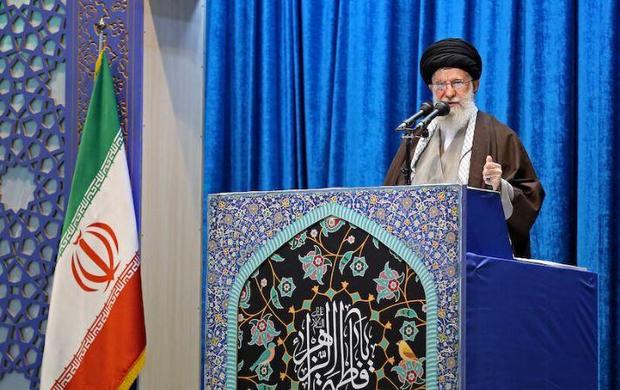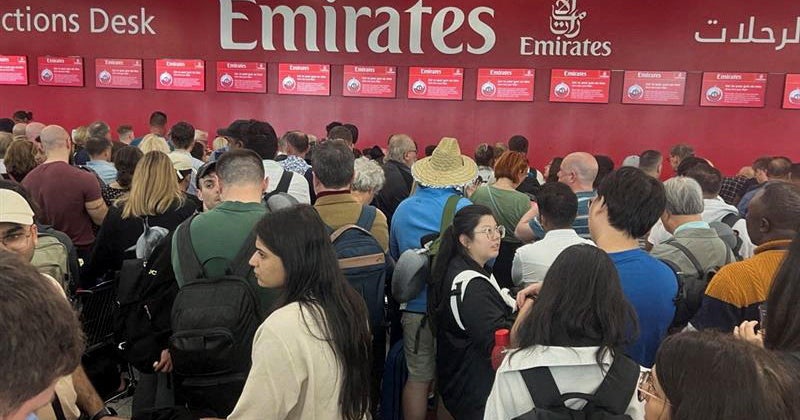Iran's supreme leader blasts U.S. "clowns" in rare personal message amid a crisis
Tehran, Iran — Iran's supreme leader took the unusual step of personally delivering a Friday sermon to his nation this week. The 80-year-old ayatollah took it upon himself to convey a vigorous defense of his military forces after they shot down a civilian plane, portray his country as united amid crisis, and rail against the Trump administration as "clowns" trying to deceive the Iranian people.
Khamenei struck a defiant tone in his first Friday sermon in Tehran in eight years. A handful of designated clerics usually deliver his Friday message for him. He has done so personally only a few times since he became supreme leader in 1989.
Khamenei said the mass funerals for Iran's top general, who was killed in a U.S. airstrike earlier this month, show that the Iranian people support the Islamic Republic despite its recent trials. He said the "cowardly" killing of Major General Qassem Soleimani had taken out the most effective commander in the battle against ISIS.
In response, Iran launched a barrage of ballistic missiles targeting U.S. troops in Iraq, without causing serious injuries. Khamenei said the strike had dealt a "blow to America's image" as a superpower. In part of the sermon delivered in Arabic, he said the "real punishment" would be in forcing the U.S. to withdraw from the Middle East.
"These American clowns who are lying, with utter wickedness, and say 'we stand beside the Iranian people' should watch now and see who the Iranian people are," the ayatollah said, apparently referring to President Trump's tweets of support for anti-regime protesters.
After the missile barrage on bases in Iraq, Iran's Revolutionary Guard braced for an American counterattack and it was then that they mistakenly shot down a Ukrainian jetliner shortly after it took off from Tehran's international airport, killing all 176 passengers on board, mostly Iranians. President Trump never ordered a U.S. counterstrike, but imposed further sanctions on Iran instead.
Iranian authorities concealed their role in the tragedy for three days, initially blaming the crash on a technical problem. Their admission of responsibility triggered days of street protests, which security forces dispersed with tear gas and purportedly live ammunition.
Khamenei called the shootdown of the plane a "bitter accident" that saddened Iran as much as it made its enemies happy. He said Iran's enemies had seized on the crash to question the Islamic Republic, the Revolutionary Guard and the armed forces.
He also lashed out at Western countries, saying they are too weak to "bring Iranians to their knees." He said Britain, France and Germany, which this week triggered a dispute mechanism to try and bring Iran back into compliance with the unraveling 2015 nuclear agreement, were "contemptible" governments and "servants" of the United States.
He said Iran was willing to negotiate, but not with the United States.
Khamenei, who has the final say on all major decisions in Iran, openly wept at the funeral of Soleimani and vowed "harsh retaliation" against the United States.
Thousands of people attended the Friday prayers, occasionally interrupting his speech by chanting "God is greatest!" and "Death to America!"
Tensions between Iran and the United States have steadily escalated since President Donald Trump withdrew the U.S. from Iran's 2015 nuclear deal with world powers, which had imposed restrictions on its nuclear program in exchange for the lifting of international sanctions.
The U.S. has since imposed crippling sanctions on Iran, including its vital oil and gas industry, pushing the country into an economic crisis that has ignited several waves of sporadic, leaderless protests. Trump has openly encouraged the protesters - even tweeting in Farsi - hoping that the protests and the sanctions will bring about fundamental change in a longtime adversary.
After Soleimani was killed, Iran announced it would no longer be bound by the limitations in the nuclear agreement. European countries who have been trying to salvage the deal responded earlier this week by invoking a dispute mechanism that could result in even more sanctions.
Khamenei was always skeptical of the nuclear agreement, arguing that the United States could not be trusted. But he allowed President Hassan Rouhani, a relative moderate, to conclude the agreement with President Barack Obama. Since Trump's withdrawal, he has repeatedly said there can be no negotiations with the United States.
Khamenei last delivered a Friday sermon in February 2012, when he called Israel a "cancerous tumor" and vowed to support anyone confronting it. He also warned against any U.S. strikes on Iran over its nuclear program, saying the U.S. would be damaged "10 times over."




